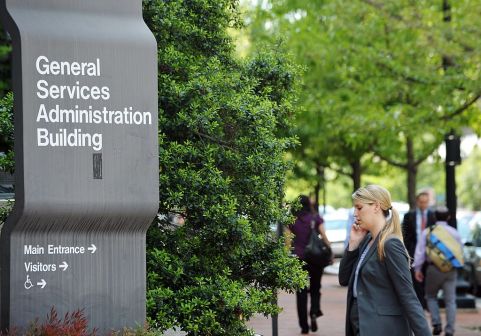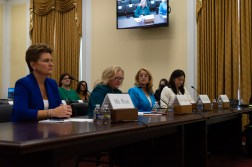GSA updates Technology Modernization Fund repayment policy following lawmakers’ proposal

The General Services Administration, in consultation with the White House’s Office of Management and Budget, updated its repayment policy for agencies that are seeking to receive financial assistance from the Technology Modernization Fund.
In an email acquired by FedScoop, GSA shared that it had updated the TMF’s repayment policy to reflect a new “consistent repayment floor with a minimum of 50% repayment,” with “rare exceptions” decided by the GSA administrator and OMB director.
An OMB spokesperson confirmed the update in an email to FedScoop. GSA didn’t respond to FedScoop’s request for comment.
The update is meant to continue allowing the fund to invest in technology and cybersecurity modernization for “years to come,” the email states, adding that it applies to all proposals submitted after Feb. 6.
The requirements reflect the Modernizing Government Technology Reform Act of 2023, introduced by Reps. Nancy Mace, R-S.C., and Gerry Connolly, D-Va. in Sept. 2023. The bill would require agencies to adhere to the intent of the original bill that created the TMF in 2017 — the Modernizing Government Technology Act — and hold agencies accountable for any funds issued to be “repaid or reimbursed to maintain solvency and ensure sustainability.”
“Due to the House Oversight Committee’s oversight and proposed legislation, the TMF has made structural changes that will limit wasteful spending, enhance efficiency and chart a path for a more successful and optimized future,” a House Oversight and Accountability Committee spokesman said in an email to FedScoop. “Congressional intent was to put money into this fund upfront and have it be a revolving fund that would be repayed [sic].”
The OMB spokesperson said the decision to relax repayment requirements was an important function to support the $1 billion in American Rescue Plan funds appropriated to the TMF meant to “address urgent IT modernization challenges, bolster cybersecurity defenses and improve delivery of COVID-19 relief.”
“To meet the urgency of the moment, the TMF adapted its repayment policy to consider flexible repayment levels for projects that met certain criteria, including investments that produced significant positive impact or addressed critical security or capability gaps,” the OMB spokesperson said. “As the TMF Board allocates the last of the ARP funding, we are looking to the future of the TMF in a post-ARP setting – balancing congressional intent and agency flexibility to deliver the most impact for the American people.”
While both Mace and Connolly were pleased with the move to update the repayment policy, they expressed differing perspectives on how the Biden administration came to this arrangement.
Mace told FedScoop a statement about this update: “Due to our relentless oversight and legislative work, the Biden Administration has made overdue and necessary changes to the TMF to better align the program with Congressional intent. This is what proper oversight of the federal government looks like and we will continue in our mandate to root out waste, fraud, and abuse within federal programs on behalf of the American people.”
Connolly, however, pointed to the updated repayment requirements as an example of the White House’s “commitment to the long-term health and sustainability of the TMF,” according to a statement from Connolly shared with FedScoop.
“It is consistent with our bipartisan TMF reauthorization legislation which would encourage greater repayment for TMF projects,” Connolly said. “The Administration should be proud to receive much-deserved praise from both sides of the aisle for their commitment to protecting and enhancing the TMF. I look forward to continuing to secure transformative federal IT investments.”
The TMF also announced last week that it will start to accept applications regarding AI projects from federal agencies to further the advancement of the government’s deployment of technology.






